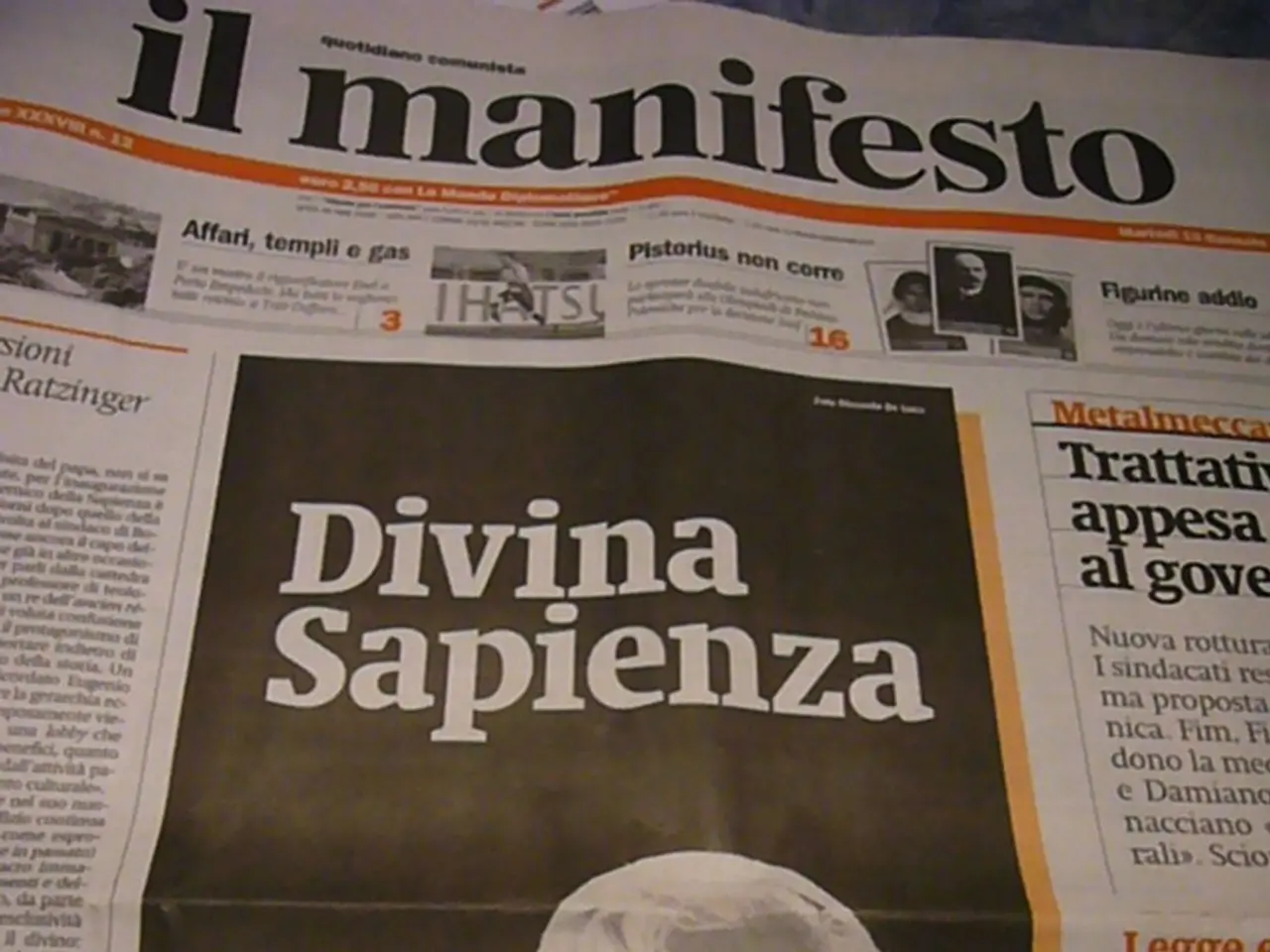Tragedy of Journalist Gary Webb, Who Took His Life After Unveiling CIA's Secretive Activities
In the mid-1990s, investigative journalist Gary Webb shook the nation with his groundbreaking series, Dark Alliance, published in the San Jose Mercury News. The three-part exposeé linked a guerrilla army in Nicaragua, a Southern California drug ring, and the CIA to the crack epidemic that gripped Los Angeles in the 1980s.
At the heart of Webb's investigation was Oscar Danilo Blandón Reyes, a prolific cocaine supplier who seemed to be protected by higher-ups that held jurisdiction over local authorities from 1981 to 1986. Blandón's drug empire extended to 42 U.S. cities, including Los Angeles, where he supplied crack cocaine to black gangs, contributing significantly to the city's drug crisis.
Webb's reports suggested that the CIA funded this drug ring, an allegation that sparked intense public controversy and prompted official government inquiries. The series of reports ignited protests in L.A. and black communities across the country, as African-Americans were outraged by the assertion that the U.S. government may have supported or turned a blind eye to the drug epidemic.
Ross, a key player in Blandón's drug ring, made over $900 million in the 1980s, with a profit of nearly $1 billion in today's dollars. Ross was unaware of Blandón's past, including his connection to the Contras and the CIA. It was only when Ross was researching asset forfeitures in 1993 that he first learned about Blandón.
The controversy surrounding Webb's reports was palpable. The CIA, amid a public relations "nightmare," broke its policy of not commenting on any individual's agency affiliation and denied Webb's story entirely. Major newspapers like The Washington Post, The New York Times, and Los Angeles Times challenged Webb's reporting, leading to his demotion and eventual resignation from the San Jose Mercury News.
Despite official reports appearing to vindicate some of Webb’s core claims by confirming CIA negligence in investigating Contra drug connections, Webb's career suffered significantly, and he struggled to find work in journalism thereafter. Tragically, Webb died in 2004 in circumstances ruled a suicide, though some view his death as mysterious given the backlash he faced.
The investigation broadened the public discourse on U.S. government covert actions and their unintended social consequences, especially in marginalized communities. Webb's reporting linked drug traffickers connected to the Contras, such as Danilo Blandón and Freeway Rick Ross, to the spread of crack cocaine in Los Angeles. Webb also published a book expanding on the series.
Officially, the CIA Inspector General’s 1998 reports admitted agency knowledge of drug activities by Contra affiliates but denied direct CIA involvement or intentional targeting of Black neighborhoods. The controversy further highlighted larger covert operations like the Iran-Contra affair and the U.S. government's broader interference in Nicaragua during the 1980s, which involved funding the Contras through illicit means.
In a written statement to obtain a search warrant for Blandón's cocaine operation, L.A. County sheriff's Sergeant Tom Gordon confirmed that local drug agents knew about Blandón's involvement with the CIA-backed Contras. Blandón later testified as the Justice Department's key witness in a 1996 drug trial, confirming his drug ring sold close to one ton of cocaine in the U.S. in 1981 alone and that the profits went to the Contra rebels.
Ross, who considered Blandón as a godfather figure, was released from prison in 2009 after finding a legal loophole. Webb's reporting challenged the widely held belief that crack use began in African American neighborhoods without a tangible reason but mainly because of the kind of people who lived there.
Webb's Dark Alliance series exposed a complex web of connections between U.S. foreign policy, covert operations, and domestic drug epidemics, causing significant public debate, governmental scrutiny, and severe professional consequences for Webb himself. Despite the backlash, Webb's work remains a crucial piece of journalism that shines a light on the darker aspects of U.S. history.
[1] Webb, Gary. "Dark Alliance: The Story of the Crack Cocaine Epidemic and How the CIA-Connected Contras Stole Billions." Seven Stories Press, 2000.
[2] "The Dark Alliance: A Closer Look." PBS Frontline, 1999.
[3] "The Dark Alliance: The CIA, the Contras, and the Crack Cocaine Explosion." San Jose Mercury News, 1996.
[4] "Inspector General Report on Contra Drug Trafficking." Central Intelligence Agency, 1998.
- The controversial Dark Alliance series by investigative journalist Gary Webb, published in 1996 in the San Jose Mercury News, delved into the intersection of politics, history, and education-and-self-development, as it exposed a complex web of connections between U.S. foreign policy, covert operations, and domestic drug epidemics.
- The investigation sparked general-news headlines and national outrage, with the controversy following Webb throughout his career and even influenced broader discussions on politics, history, and the social consequences of covert actions, particularly in marginalized communities.




